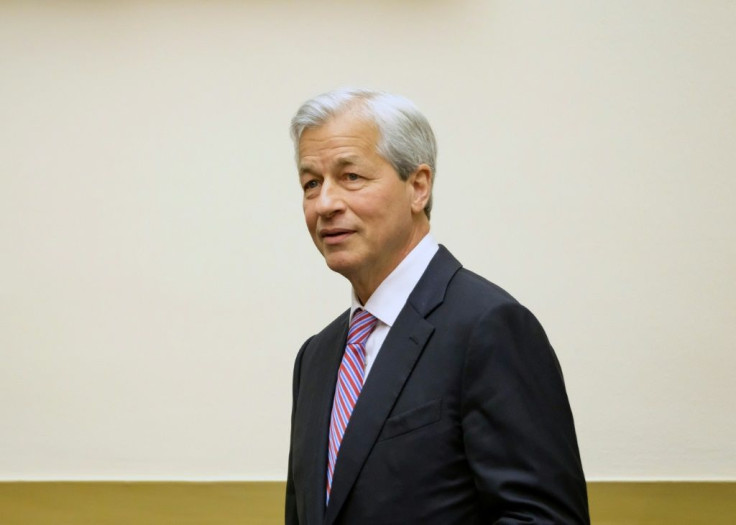Tuesday's Stock Market Open: US Equities Open Lower As Earnings Season Gets Underway

KEY POINTS
- JP Morgan and Citigroup posted strong 4Q earnings, but Wells Fargo's results were weak
- U.S. and China will sign phase 1 of trade deal Wednesday
- Core CPI rose mildly in Dec. 2019
U.S. stocks drifted lower on Tuesday ahead of the signing of a China trade deal Wednesday and a slew of big bank earnings.
The Dow Jones Industrial Average slipped 3.45 points to 28,903.60 while the S&P 500 fell 5.75 points to 3,282.38 and the Nasdaq Composite Index dropped 18.80 points to 9,255.13.
On Monday, the U.S. removed China from a list of countries deemed to be currency manipulators. Chinese and U.S. trade officials are scheduled to sign a phase one trade deal in Washington on Wednesday. China will also reportedly pledge to purchase $200 billion of U.S. goods over a two-year period.
“The next step is really whether the two countries adhere to the trade agreement and what the details of that trade agreement are,” said Laura Foll, portfolio manager at Janus Henderson Investors. “And following on from that, how phase two of the negotiations go.”
The core consumer price index, which does not include volatile food and energy sectors, edged up 0.1% in December from the prior month, the smallest such advance in three months, the Labor Department said Tuesday. The core CPI rose 2.3% from a year earlier.
China’s exports rose 7.6% in December from a year earlier while imports climbed 16.3%. China posted a trade surplus of $46.79 billion in December, up from November’s surplus of $37.93 billion.
J.P. Morgan Chase (JPM) posted fourth quarterly earnings and revenue that exceeded analyst expectations. The bank’s annual profit reached a record $36.4 billion.
Citigroup (C) reported quarterly results that also beat analyst expectations, driven by a 49% surge in bond trading revenues.
But Wells Fargo (WFC) saw its fourth-quarter profits plunge by more than 50% on low interest rates and litigation charges.
FactSet cautioned that S&P 500 fourth quarter profits were expected to fall 2% on a year-over-year basis.
“The market continues to be in an extreme overbought condition that indicates the recent gains could be temporarily given back, while the fundamental backdrop driven by our core thesis and [earnings] suggest buying any meaningful weakness,” Tony Dwyer, chief market strategist at Canaccord Genuity, said in a note.
In a speech in London, John Williams, president of the New York Federal Reserve Bank, said Wall Street needs to alter its culture.
“When we talk about company culture in the context of financial services, the first thing that comes to mind is the risky, unethical, and sometimes criminal behavior in the banking industry, particularly during the financial crisis,” Williams said. “And 10 years on from the crisis, this behavior persists. Instances of fraud, money laundering, and scandals related to foreign exchange and Libor continue to make the headlines.”
“Markets will be hunting for signs of apprehension over this reporting season with outlooks and sentiment more pressing given where we are valuations-wise,” said Bethel Loh, macro strategist at ThinkMarkets. “Even if we do catch some subpar results, simply issuing a positive outlook on forward guidance is all of the sugar hit markets need to be swayed to stay long.”
The National Federation of Independent Business’ Small Business Optimism Index fell by two points in December reading to 102.7.
Overnight in Asia, markets finished mixed. China’s Shanghai Composite dropped 0.28%, while Hong Kong’s Hang Seng fell 0.24%, and Japan’s Nikkei-225 rose 0.73%.
In Europe markets closed slightly higher, as Britain’s FTSE-100 gained 0.06%, France’s CAC-40 advanced 0.08% and Germany’s DAX rose 0.04%.
Crude oil futures rose 0.6% at $58.43 per barrel and Brent crude climbed 0.93% at $64.80. Gold futures dropped 0.48%.
The euro fell 0.02% at $1.1132 while the pound sterling edged up 0.21% at $1.3016.
© Copyright IBTimes 2024. All rights reserved.




















